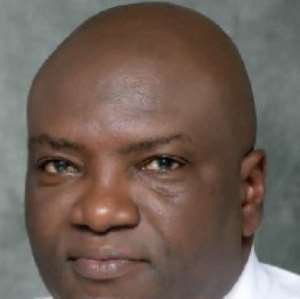
Kenneth Kuranchie’s concerns about Ghana’s democratic image amid leadership removals invite an important discussion. While stability matters, a government’s credibility is not defined by tenure alone but by its unwavering commitment to accountability, ethical governance, and rule of law.
Leadership transitions should not be perceived as threats to democracy but as necessary recalibrations to preserve institutional integrity. Countries with robust democratic systems—including the United States, the UK, and South Korea—illustrate that removing officials for misconduct is not a sign of instability but of a functioning system that prioritizes justice over political convenience.
Legal Precedents Supporting Leadership Accountability
Globally, legal frameworks exist to ensure that no official is above the law. Ghana must not shy away from reinforcing accountability, as history has shown that transparent governance strengthens democratic stability rather than weakens it.
United States—Impeachment & Ethics Oversight: In the U.S., presidents, judges, and other high-ranking officials can be impeached or removed through independent oversight mechanisms. This ensures that misconduct does not persist simply because an official has tenure. South Korea—Judicial Accountability: South Korea has demonstrated an unwavering commitment to prosecuting corrupt officials, including former presidents. The removal and prosecution of leaders guilty of misconduct have strengthened, not destabilized, the nation’s democratic credibility. Germany—Leadership Resignations for Ethical Breaches: In Germany, leaders voluntarily resign when their integrity is questioned, reinforcing public trust in institutions rather than allowing scandals to erode confidence. This practice underscores the principle that democracy thrives when officials are held accountable.
Ghana must embrace these best practices, ensuring that governance is rooted in accountability rather than a rigid adherence to tenure.
Lessons from Global Best Practices
Beyond legal frameworks, nations that balance leadership accountability with democratic stability offer valuable insights:
Singapore’s Meritocratic Governance – Singapore has thrived by implementing strict accountability measures while maintaining leadership continuity. Officials are assessed on competence and integrity rather than tenure alone, ensuring sustainable governance. South Korea’s Judicial Accountability – Corrupt officials, regardless of rank, are prosecuted. South Korea has demonstrated that holding leaders accountable fosters public trust rather than diminishing stability. Germany’s Institutional Strength – Leadership changes occur, but robust institutions ensure that reforms proceed without disruption. Ghana could benefit from similar institutional resilience.
Recommendations for Ghana’s Democratic Strengthening
To fortify democracy without compromising governance, Ghana should consider the following:
1. Strengthen Constitutional Clarity on Leadership Dismissals
Introduce clear legal provisions that define grounds for removal, ensuring actions are based on accountability rather than political motives.
2. Enhance Institutional Oversight Mechanisms
Expand judicial and parliamentary review processes to prevent abuse of power and ensure leadership transitions are lawful and transparent.
3. Safeguard Ethical Governance Through Independent Bodies
Establish independent commissions to evaluate leadership conduct, reducing political interference in decision-making.
4. Implement Leadership Performance Assessments
Introduce mandatory evaluations for high-ranking officials, ensuring tenure aligns with effectiveness, integrity, and public trust.
5. Invest in Democratic Education & Public Engagement
Educate citizens on governance principles to foster a culture that values accountability over political loyalty.
Conclusion & Call to Action
Ghana’s reputation as a democratic stronghold is not at risk due to leadership changes—it is rather strengthened by a commitment to accountability. Stability comes from trust, and trust is earned through transparent governance and principled leadership. Rather than fearing leadership transitions, Ghana should embrace them as opportunities to refine democratic institutions and elevate governance standards.
By implementing structured oversight, refining legal frameworks, and ensuring smooth transitions, Ghana can set an example for democratic resilience across Africa and beyond.
Call to Action:
To ensure that Ghana’s democratic future remains strong, stakeholders—including policymakers, civil society, and the general public—must advocate for structured oversight, fair leadership transitions, and institutional reforms. Citizens must actively engage in governance discussions, challenge misinformation, and demand transparency in decision-making.
Join the conversation. Let’s shape a governance model where accountability drives progress, not controversy.
Retired Senior Citizen
Teshie-Nungua
[email protected]


